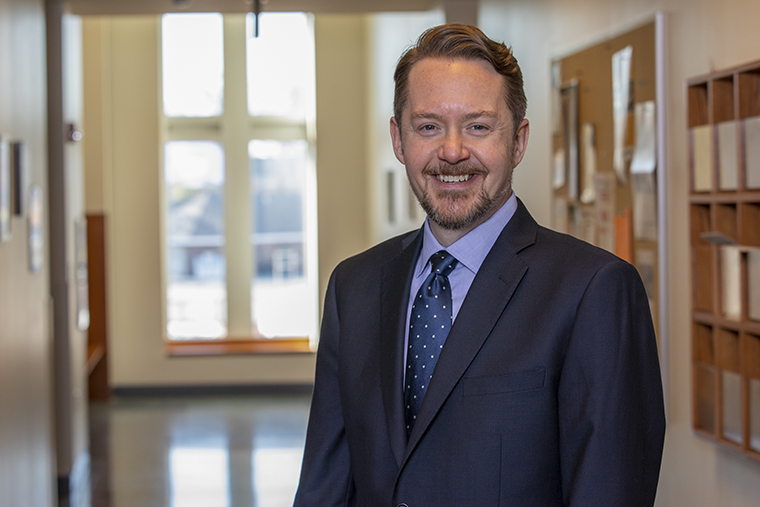A new partnership between the Weidenbaum Center on the Economy, Government, and Public Policy and Harvard University will give social scientists at Washington University in St. Louis the opportunity to receive constructive, anonymous feedback on their grant proposals and research at any stage. The program aims to improve scholarship and speed its publication, as well as create more successful grant applications.
The Weidenbaum Center is the first affiliate program to join the Alexander and Diviya Magaro Peer Pre-Review Program at Harvard’s Institute for Quantitative Social Science. Additionally, Gaentano Antinolfi and Ian Fillmore, in the Department of Economics in Arts & Sciences at WashU, will serve as associate editors for the program.
“We are thrilled to be partnering with Washington University on the peer pre-review program,” said Gary King, director of the Institute for Quantitative Social Science and Harvard’s Albert J. Weatherhead III University Professor. “This partnership will enable both universities to increase the quality of their research and to reduce the time from social scientific discoveries to when this knowledge is used to advance the public good.”
Peer pre-review is similar to the typical scholarly journal peer review process, but faster — just under four weeks on average — and often more constructive. Researchers can submit questions they would like reviewers to focus on. They also can get feedback about the research questions, methods, data, proposed theories, publication strategy and more.

“Any scholar knows that journal rejections are routine in academia and can lead to months of delays, if their paper is ever published,” said Andrew Reeves, director of the Weidenbaum Center and a professor of political science in Arts & Sciences. “The peer pre-review process improves efficiency and productivity by giving researchers access to valuable feedback along the way rather than waiting until their manuscript is complete.
“We are excited to offer this valuable service to our social science colleagues and are grateful to Arts & Sciences Dean Feng Sheng Hu and Vice Dean of Research Deanna Barch for their support of the program.”
How to participate
The peer pre-review service is available at cost — typically $500 per submission — to all WashU faculty conducting social science research, including political science, economics, history, psychology, sociology, law, anthropology, business, public policy and public health. The Weidenbaum Center will subsidize pre-reviews in economics, sociology and political science.
Senior and junior faculty, postdoctoral researchers and senior graduate students working on job market papers are eligible to participate in the program.
The program, which will continue to be based at Harvard, contracts with faculty members from around the country who are recognized for their expertise and stature in the field to conduct the double-blinded peer pre-reviews. Participants can suggest eight to 10 candidates to review their work, or the associate editors of the program will choose for them. To maintain anonymity, reviewers should not be employed by the same institution(s) as any of the authors.
Because they are compensated, reviewers are expected to provide detailed, constructive feedback within a matter of weeks, not months.
Success stories
Taylor Carlson, an assistant professor of political science in Arts & Sciences, was one of the first faculty members to use the service. Last fall, she submitted a pre-analysis plan that outlined the research question, situated it within the literature, derived some hypotheses and explained the proposed research design and data collection strategy. Ultimately, she said the changes the reviewers suggested improved the study design and gave her and her research partner confidence that they were on the right track.
“My collaborator, Erin Rossiter, assistant professor at the University of Notre Dame and a WashU political science alumna, and I had been planning a complex, resource-intense study that would introduce a new research design,” Carlson said.
It was really helpful to get blind reviews on the design before putting the study into the field. The reviewer was able to notice things from a different perspective that we had been overlooking because we were too deep in the weeds of the project.
Taylor Carlson
“It was really helpful to get blind reviews on the design before putting the study into the field. The reviewer was able to notice things from a different perspective that we had been overlooking because we were too deep in the weeds of the project. It was also helpful to have reassurance that the research question was interesting and that our hypotheses were clearly articulated.
“The peer pre-review program is an incredible resource, and I cannot express how thrilled I am that the Weidenbaum Center is making this possible,” Carlson said.
Carlson’s colleague, William Nomikos, an assistant professor of political science, had a similar experience using the peer pre-review program.
“I had a wonderful experience with pre-review. I sent them a manuscript entitled ‘The strategic logic of violence against peacekeepers’ for which I received two extremely detailed reviews,” Nomikos said. “I revised the manuscript after pre-review and then sent it to the journal, World Politics, the preeminent journal of comparative politics and international relations, where it received an R&R (revise & resubmit decision).
“The pre-review process helped in three ways: First, it helped my co-authors and I clarify some things about the argument that were obvious to us and the colleagues who had read it but not to a more general audience. Second, it provided us with a punch list of things to do on the manuscript before submission. Finally, it gave us honest guidance on where to submit the manuscript for review. I would use the service again without a doubt.”
Learn more about the Alexander and Diviya Magaro Peer Pre-Review Consortium and how to submit eligible research documents.


